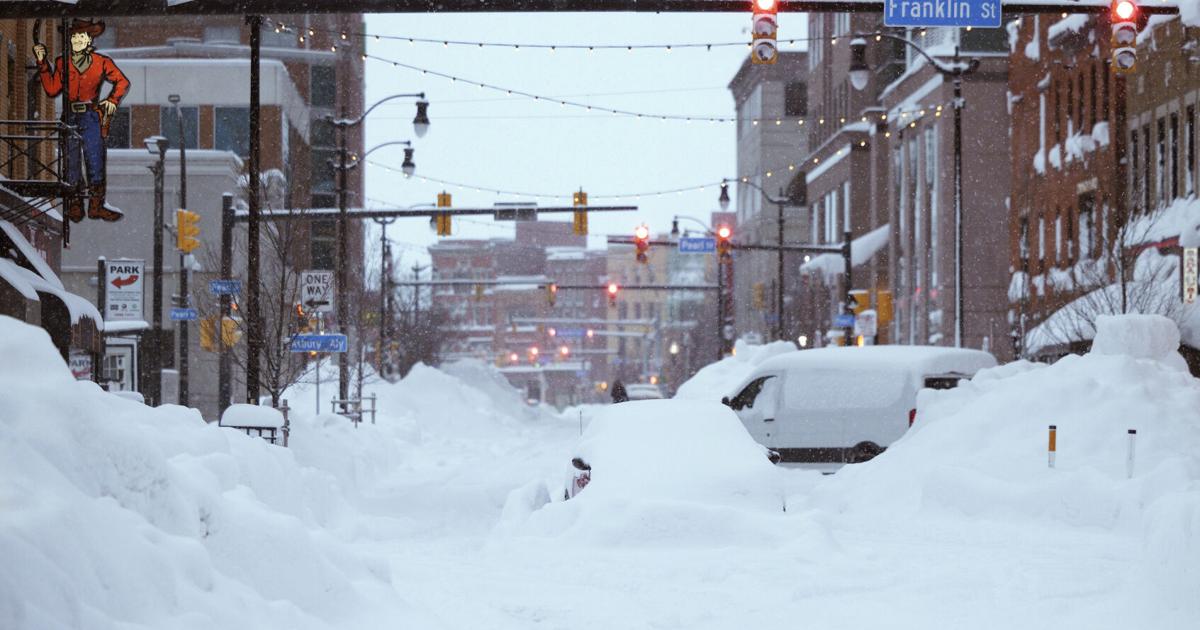The “once-in-a-generation” snow storm that has battered some parts of the Unites States over Christmas is not about to relent yet, with from nine to sixteen inches (22.8 – 40 cm) of snow expected on Tuesday, the US National Weather Service (NWS) warned.
Thus, in New York state the winter storm warnings remain in effect for Jefferson and Lewis counties, while a winter weather advisory cautions residents of Erie County to expect from 4 to 8 inches of snow. People are being strongly advised to stay indoors to avoid getting trapped in the inclement weather conditions.
US President Joe Biden issued a federal emergency declaration for the state of New York on December 26, authorizing government assistance amid ongoing recovery efforts aided by hundreds of National Guard troops.
Since the storm system first started lashing the US six days ago, over fifty lives are estimated to have been claimed by the frigid temperatures, with over half of the deaths occuring in western New York. In Buffalo, the blizzard left the city looking like a “war zone,” according to New York Governor Kathy Hochul, with vehicles abandoned along the roads in eight-foot (2.4-meter) snow drifts. Some people were stranded for at least two days in cars, as ambulances and fire trucks were unable to reach them. Other residents were similarly stranded in homes without any heating, amid power outages. Hochul described the developments as a “very dangerous life-threatening situation.”
14 people in Erie County, New York, lost their lives due to exposure, three were discovered in their vehicles, four had no heat, three deaths were from shoveling/(snow) blowing cardiac events, and three people passed away after EMS services were delayed, according to County Executive, Mark Poloncarz. He told media that the overall death toll across the US was likely to surpass that of Buffalo’s blizzard of 1977. At the time, 30 people reportedly perished.
The polar blast hailing from Canada has affected an estimated 60 percent of the US population, with the drastically low temperatures registered from the Great Lakes area to the Rio Grande.
On December 24, an estimated 1.7 million customers were left without electricity in the sub-zero temperatures, according to tracker poweroutage.us. Thousands of US flights have been cancelled, showed tracking website Flightaware.com. There have also been driving bans in some communities due to the dangerous road conditions.
As snow blowing from the Great Lakes region grows less intense, the Arctic air gripping a greater part of the eastern US will take a slow time to ease its grasp, the National Weather Service warned.
Source: Sputnik and AFP




